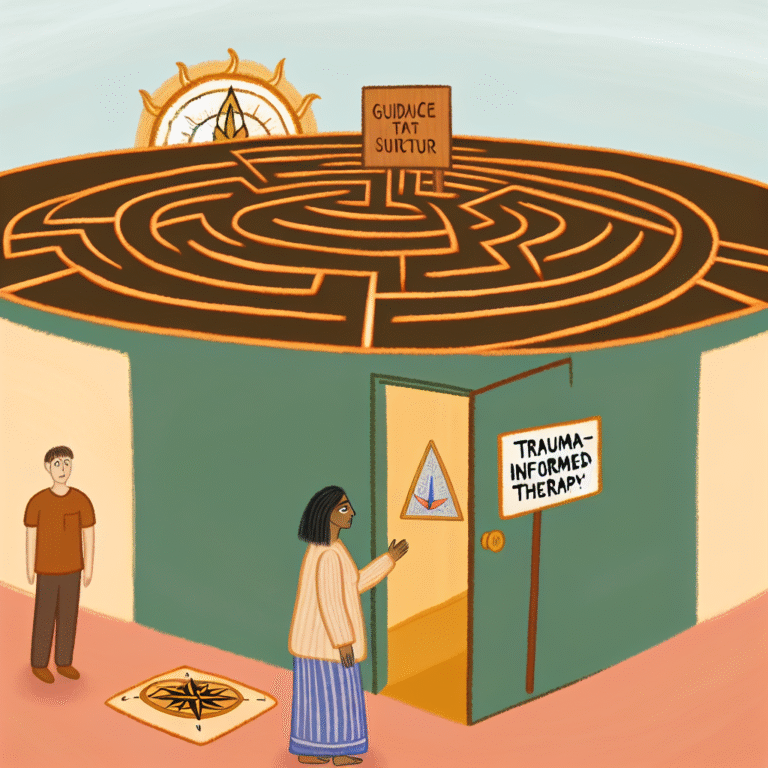
Reclaim Your Sleep: Why CBT Is the Key to Combatting Insomnia
Introduction
Do you find yourself staring at the ceiling while the clock ticks away the hours? Sleepless nights can lead to a cascade of issues, impacting your work, relationships, and overall well-being. In the realm of sleep disorders, insomnia is one of the most common culprits, affecting millions worldwide. Fortunately, there is a powerful tool that can help you turn the tide—Cognitive Behavioral Therapy (CBT).
In this article, we will explore how CBT can reclaim your sleep and revolutionize your approach to managing insomnia. With proven techniques and holistic understanding, CBT empowers individuals to address the underlying thought patterns and behaviors that contribute to restless nights. Let’s dive deeper into the transformative abilities of CBT and how you can leverage it to restore your slumber.
Understanding Insomnia: The Silent Epidemic
Insomnia goes beyond the occasional restless night; it’s a chronic condition that undermines your health and quality of life. It manifests in various forms, including difficulty falling asleep, staying asleep, or waking up too early. According to the American Sleep Association, 30% of adults experience short-term symptoms of insomnia, while 10% suffer from chronic insomnia.
The Impacts of Insomnia
| Impact on Life | Description |
|---|---|
| Cognitive Function | Impairs concentration, memory, and decision-making. |
| Emotional Health | Increases risks of anxiety and depression. |
| Physical Health | Contributes to obesity, diabetes, and cardiovascular issues. |
| Social Relationships | Creates conflicts and strains due to irritability. |
The Genesis of CBT: What Is It?
Cognitive Behavioral Therapy is a structured, goal-oriented psychotherapy that focuses on the interplay between thoughts, feelings, and behaviors. Unlike traditional therapy that may delve into past traumas, CBT hones in on the here and now, providing practical strategies designed to change negative thought patterns.
How Does CBT Work?
CBT consists of several key components:
- Cognitive Restructuring: Challenging unhelpful thoughts about sleep.
- Behavioral Interventions: Modifying sleep habits and environments.
- Mindfulness and Relaxation Techniques: Reducing anxiety and stress.
By employing these techniques, individuals can alter their perceptions and responses concerning sleep, leading to more restful nights.
The Science Behind CBT for Insomnia
Research supports the efficacy of CBT as a primary treatment for insomnia. A meta-analysis published in Sleep journal in 2016 reviewed 50 studies involving 4,500 participants and found that CBT significantly outperformed medication in helping individuals with insomnia.
Key Findings
- Sustained Effects: CBT provides lasting benefits, with improvements in sleep quality lasting up to 6 months post-therapy.
- Minimal Side Effects: Unlike sleep medications, CBT has minimal risk of dependency or adverse side effects.
Reclaim Your Sleep: Why CBT Is the Key to Combatting Insomnia
Step 1: Identifying Negative Sleep Thoughts
The first step in CBT is to recognize negative thoughts associated with sleep. Common thoughts include:
- "If I don’t get at least 8 hours of sleep, I won’t function tomorrow."
- "I’ll never be able to fall asleep again."
Identifying these patterns is crucial as they perpetuate the cycle of sleeplessness.
Step 2: Cognitive Restructuring
Once thoughts are identified, the next phase involves challenging and restructuring them. For instance, replacing “I can’t sleep” with “I may struggle tonight, but that’s okay” helps create a more relaxed mindset.
Step 3: Developing Healthy Sleep Habits
Behavioral changes form the backbone of CBT. These may include:
- Sleep Hygiene: Creating an environment conducive to sleep—a cool, dark room, minimizing electronics, and maintaining a consistent sleep schedule.
- Stimulus Control: Associating the bed with sleep rather than wakefulness by using it only for sleep and intimacy.
Step 4: Implementing Relaxation Techniques
Incorporating mindfulness, meditation, and deep-breathing exercises into your nightly routine can help mitigate anxiety and prepare the mind for sleep.
Case Study 1: Sarah’s Journey to Better Sleep
Sarah, a 35-year-old marketing professional, struggled with insomnia for over a year. After acknowledging her sleep issues, she committed to a six-week CBT program. Through cognitive restructuring, Sarah learned to challenge her negative thoughts. She developed a consistent bedtime routine and practiced mindfulness before sleep.
Outcome: After completing the program, Sarah reported sleeping through the night and feeling more energized during the day.
Case Study Analysis
Sarah’s success story illustrates the power of CBT in addressing both the cognitive and behavioral aspects of insomnia. It underscores the importance of a tailored approach to treatment, adapted to individual circumstances.
Enhancing Your Sleep: Additional Tools
While CBT is a critical pillar of combating insomnia, pursuing complementary practices can enhance its effectiveness.
1. Sleep Diary
Maintaining a sleep diary allows individuals to track their sleep patterns, offering insights into habits and triggers affecting their slumber.
2. Limiting Caffeine and Alcohol
Both substances can interfere with the ability to fall or stay asleep. Limiting intake, especially in the hours leading up to bedtime, is crucial.
3. Physical Activity
Regular physical exercise can help promote deeper sleep. Aim for at least 30 minutes of moderate activity on most days.
4. Professional Support
Sometimes, engaging in CBT with a trained therapist can provide additional strategies and accountability.
Conclusion
Reclaiming your sleep is not just a desire—it’s a necessity for a fulfilled and healthy life. CBT offers a proven pathway to combat insomnia by addressing the underlying causes of sleeplessness.
The journey to better sleep is within reach, it merely requires commitment and the willingness to adopt new perspectives. As you embark on this voyage, remember: restful nights and refreshed mornings are not just dreams; they can become your daily reality.
FAQs
1. Can CBT be done on my own, or do I need a therapist?
While many find success with self-guided CBT using books and online resources, working with a trained therapist can provide personalized guidance, making the process smoother and more effective.
2. How long does it take for CBT to work for insomnia?
Most individuals start to notice improvements within 4-6 weeks, but lasting change can take longer, depending on the person and the severity of their insomnia.
3. Is CBT for insomnia covered by insurance?
Many insurance plans do cover CBT for insomnia, but you should check with your provider to confirm coverage details.
4. Can children benefit from CBT for sleep issues?
Yes, children can benefit from CBT techniques, but it’s usually best to engage a therapist who specializes in pediatric CBT.
5. Are there any side effects from CBT for insomnia?
CBT has no physical side effects, unlike sleep medications, but it may cause emotional discomfort as individuals confront their thought patterns.
In this exploration of reclaiming sleep through CBT, remember: taking the first steps is often the hardest, but the rewards—better health, increased productivity, and enriched relationships—are well worth the effort. Embrace this journey toward better sleep today!

















